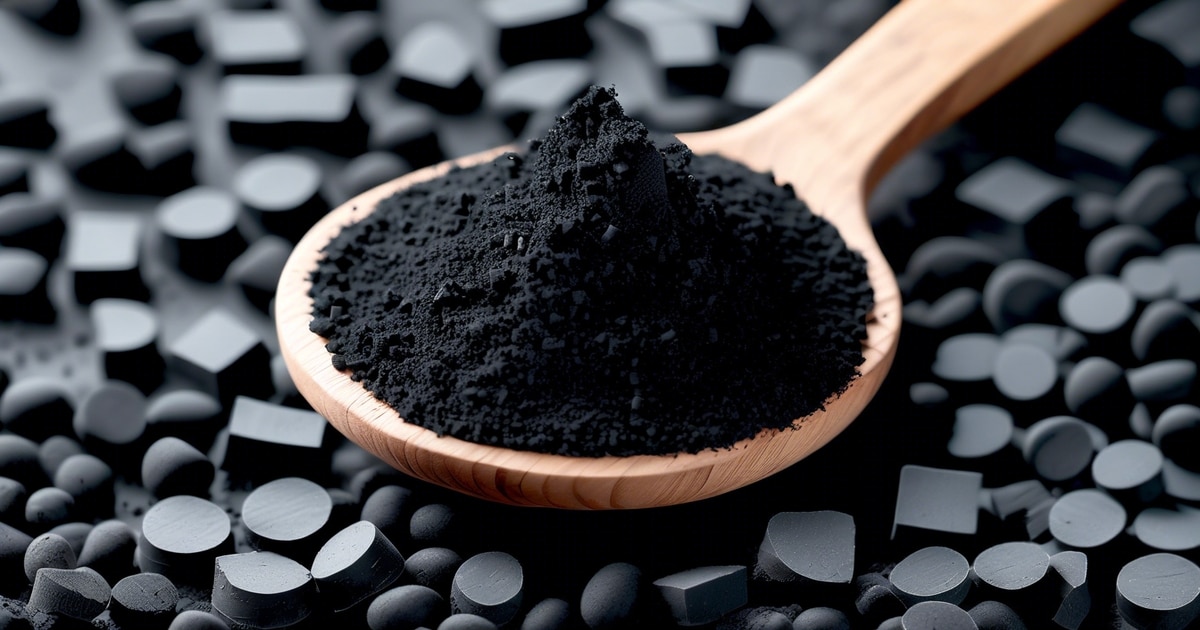Key Takeaways
- Proper activated charcoal dosage is crucial for its effectiveness in gastrointestinal decontamination.
- Be Mindful of Adverse Effects: While activated charcoal can be beneficial, it’s important to be aware of potential side effects and associated risks.
- Consult a Healthcare Professional: Always seek advice from a healthcare provider before using activated charcoal, especially if you have any underlying health conditions or are taking medications.
- Follow Storage Recommendations: Properly store activated charcoal according to guidelines to ensure its efficacy and safety when needed for use.
- Stay informed on interactions: Be cautious of potential drug interactions and contraindications with activated charcoal to prevent any adverse effects.
- Prioritize Safety: Consider warnings and caution about using activated charcoal in medicine to safeguard your well-being.
Did you know that over 50,000 cases of activated charcoal ingestion, medicine, are reported to poison control centers annually in the United States alone? Understanding the correct activated charcoal dose is crucial for its safe and effective use. Stay informed to ensure you get the most out of this popular detox remedy without any unwanted surprises.
Understanding the Uses and Benefits of Activated Charcoal
Absorbing Toxins and Chemicals
Activated charcoal is known for its ability to absorb toxins and chemicals in the body, making it a popular choice in cases of drug overdose or poisoning. By preventing the absorption of toxins into the bloodstream, activated charcoal can help mitigate potential health risks quickly.
Activated charcoal’s porous surface binds to toxins, preventing them from being absorbed by the body. This process is crucial in emergencies where immediate action is needed to cleanse the system of harmful substances. For instance, if someone accidentally ingests a toxic substance, administering activated charcoal can help reduce its effects by trapping it before it spreads further.
Natural Remedy for Digestive Issues
Apart from emergency uses, activated charcoal is a natural remedy for common digestive problems like gas and bloating. When taken in appropriate doses, activated charcoal can help alleviate discomfort caused by excessive gas buildup or indigestion. It works by binding to gas-producing compounds in the gut, reducing bloating and promoting better digestion.
- Pros:
- Effective in absorbing toxins.
- Quick action in emergencies.
- Natural remedy for digestive issues.
Mechanism of Action of Activated Charcoal
Toxin Binding in Gastrointestinal Tract
Activated charcoal’s primary function is binding to ingested toxins and chemicals in the gastrointestinal tract. Its porous structure enables it to trap toxins effectively, preventing their absorption into the body.
Activated charcoal acts like a magnet, attracting and binding with toxins in the stomach or intestines. Once bound, these toxins become inactive and cannot be absorbed by the body.
Elimination Through Bowel Movements
After binding with toxins, activated charcoal aids in their elimination through bowel movements. This process helps prevent further absorption of harmful substances into the bloodstream, efficiently promoting the excretion of these trapped toxins from the body.
- Pros:
- Effective at trapping ingested poisons.
- Prevents absorption of harmful substances.
- Cons:
- May interfere with certain medications’ absorption.
- Potential side effects like constipation if not taken correctly.
Proper Use and Dosing of Activated Charcoal

Oral Administration
Activated charcoal is typically consumed orally with water or mixed into a liquid before intake. This method aids in its absorption properties to effectively treat various conditions.
Consuming activated charcoal within an hour of exposure to toxins can help prevent the body from absorbing the substance. The dosage varies based on an individual’s weight and the type of toxin present, making it crucial to adhere strictly to healthcare professionals’ recommended dosing guidelines.
Importance of Following Guidelines
Healthcare providers play a vital role in determining the appropriate amount of activated charcoal needed for each patient. By following their instructions diligently, individuals can avoid potential risks associated with an overdose. Staying within the prescribed grams is essential, as this could lead to adverse effects instead of providing benefits.
- Taking activated charcoal promptly after toxin ingestion
- Adhering strictly to healthcare professionals’ dosage recommendations
Usual Adult Dose for Gastrointestinal Decontamination
Repeated Dosage and Frequency
Activated charcoal is typically administered in doses ranging from 50 to 100 grams for gastrointestinal decontamination. This dosage can be repeated every 4 to 6 hours as necessary. Healthcare providers may repeat the dose based on the severity of poisoning or ingestion.
In cases where systemic absorption must be prevented, healthcare professionals might opt to administer activated charcoal through a nasogastric tube. This method ensures that the charcoal reaches the gastrointestinal tract promptly, effectively binding toxins.
Pros and Cons of Activated Charcoal Dosage
- Pros:
- Effective at absorbing toxins in the GI tract.
- Can help prevent systemic absorption of harmful substances.
- Cons:
- May cause side effects like vomiting or constipation.
- Should be used sparingly due to potential adverse effects on nutrient absorption.
Adverse Effects and Risks of Activated Charcoal
Common Side Effects
Activated charcoal, when used, can lead to side effects such as black stools, vomiting, and constipation. These are typically mild and temporary reactions that occur after ingestion. The darkening of stools is a harmless effect caused by the charcoal binding to substances in the gastrointestinal tract.
Rare Risks
In rare cases, improper administration of activated charcoal can result in more severe complications. It may lead to intestinal blockage if not given sufficient fluids or an inadequate amount is administered. There is a risk of developing aspiration pneumonia if the individual accidentally inhales activated charcoal during ingestion.
Contraindications
It’s crucial to note that activated charcoal should be avoided in patients with specific conditions. Individuals with existing issues like intestinal perforation or obstruction should not use activated charcoal due to the potential risks it poses for these conditions.
Warnings and Cautions for Activated Charcoal Use
Proper Usage
Activated charcoal is not a preventative measure, so using it only when needed is crucial. Seeking advice from medical professionals before using activated charcoal is essential, especially if you have chronic illnesses or take medications regularly.
Using activated charcoal without caution can lead to unwanted interactions with medications. To avoid this, ensure a time gap of at least 2 hours between taking activated charcoal and any other medication.
Interference Risks
Activated charcoal may interfere with the absorption of certain medications in your body. In cases where immediate medical attention is required, contact poison control or visit an emergency room promptly.
- Pros:
- Effective in treating poisoning incidents.
- Widely available over-the-counter.
- Cons:
- May cause vomiting or constipation.
- Not suitable for long-term use without medical supervision.
Interactions and Contraindications of Activated Charcoal
Drug Interactions
Activated charcoal can interfere with the effectiveness of certain medications. For instance, it may decrease the absorption of oral contraceptives or antidepressants, rendering them less effective when taken concurrently.
- Pros:
- Helps prevent excessive absorption of toxins in cases of poisoning.
- Cons:
- Reduces the efficacy of some medications like oral contraceptives and antidepressants.
Allergic Reactions and Contraindications
Individuals with a known allergy to activated charcoal or any components present in it should avoid its use. Healthcare providers must be aware of patients’ allergies before administering activated charcoal.
- Contraindications:
- Should not be used in patients with gastrointestinal perforation or ileus.
- Interprofessional Team Involvement:
- The collaboration between doctors, nurses, pharmacists, et al. ensures patient safety by considering contraindications before using activated charcoal.
Storage Guidelines and Shelf Life for Activated Charcoal

Proper Storage Practices
Activated charcoal should be stored in a cool, dry place to maintain its efficacy. Moisture and direct sunlight can compromise its quality. Storing it in an airtight container can help prolong its shelf life.
Activated charcoal is commonly used for various purposes, including water filtration, emergency toxin removal, and skincare products. By storing it correctly, you ensure it is effective when needed.
Shelf Life Considerations
The shelf life of activated charcoal typically ranges from 2 to 3 years. However, checking the expiration date before use is crucial to guarantee its potency. Expired activated charcoal may not effectively absorb toxins or treat certain conditions.
- Pros:
- Prolongs effectiveness
- Ensures optimal performance
- Cons:
- Limited shelf life
Remember that proper storage practices play a vital role in maintaining the quality of activated charcoal over time. Following these guidelines will help you make the most out of this versatile substance.
Closing Thoughts
You’ve now got the lowdown on activated charcoal, from its uses to dosing and risks. Remember, it’s a powerful tool for certain situations, but following proper guidelines is crucial. Always stick to recommended doses and be aware of potential side effects. If you ever need activated charcoal, ensure you have the right information.
Stay informed, stay safe, and consult a healthcare professional. Now that you’re armed with this knowledge, you can make better decisions about using activated charcoal if needed. Take care of yourself and those around you – knowledge is power!
Frequently Asked Questions
How does activated charcoal work in the body?
Activated charcoal binds to toxins and chemicals in the gut, preventing their absorption into the bloodstream. It acts like a sponge, trapping harmful substances before they can cause harm.
What is the usual adult dose of activated charcoal for gastrointestinal decontamination?
The typical adult dose for gastrointestinal decontamination is 25-100 grams of activated charcoal. However, always follow your healthcare provider’s recommendations or seek medical advice in case of ingestion emergencies.
Are there any risks or adverse effects associated with taking activated charcoal?
Some common side effects of activated charcoal include constipation and black stools. In rare cases, it may cause vomiting or diarrhea. Always consult a healthcare professional before using it regularly.
Can activated charcoal interact with other medications or conditions?
Activated charcoal can interfere with certain medications like antidepressants and birth control pills by reducing their effectiveness. You must inform your doctor about your medications before using activated charcoal.
How should I store activated charcoal, and what is its shelf life?
Store activated charcoal in a cool, dry place away from moisture and direct sunlight. Check the expiration date on the packaging, as it typically has a shelf life of around 2-3 years when stored properly.

